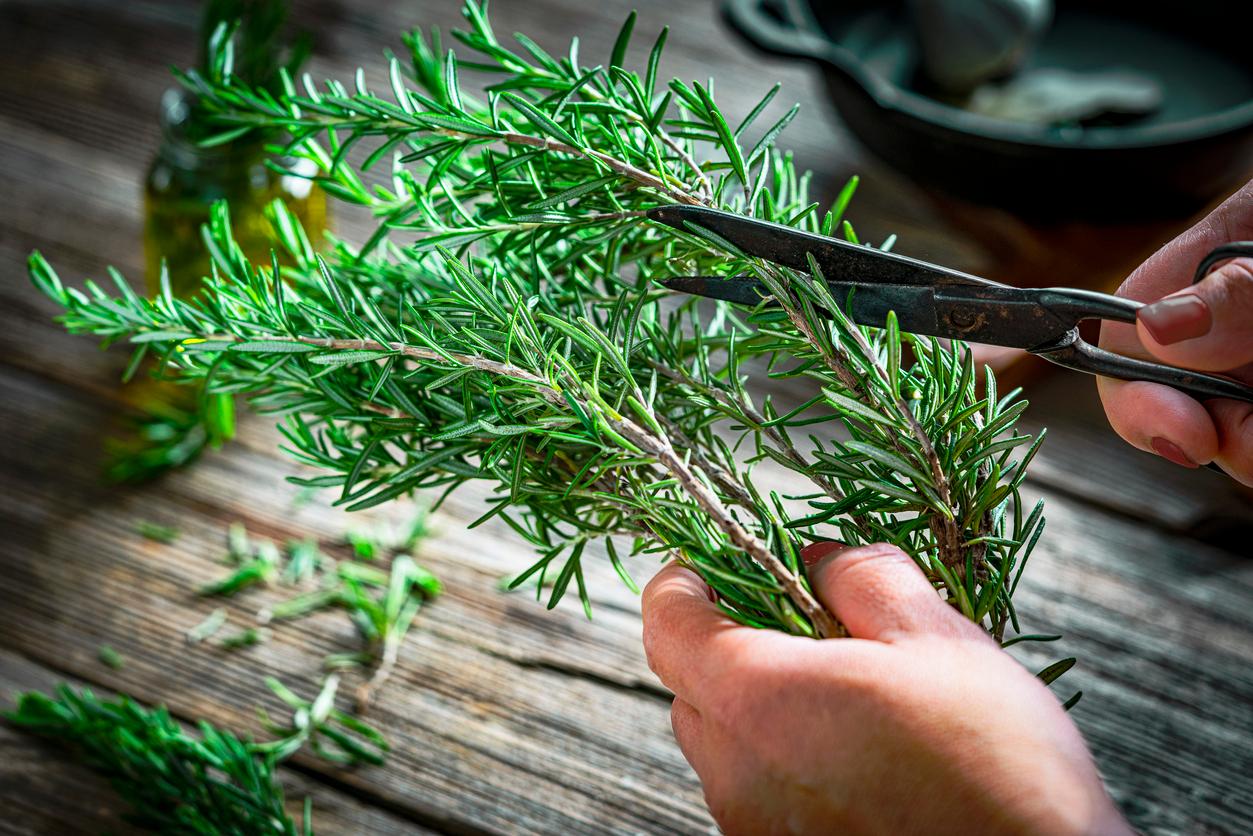Can Dogs Eat Rosemary? What Experts Have to Say About This Herb
Keep in mind your dog's age, prior health concerns, and veterinary guidance.
Published Dec. 5 2024, 5:09 p.m. ET

The aroma of cooking herbs like rosemary may lead your companion dog to follow his nose into the kitchen, but is rosemary safe for them to consume?
Whether you are exploring different flavor combinations or experimenting with different herbs and spices, you know how fun it can be to cook with rosemary and use it as a garnish. Your dog's safety, though, is of paramount importance.
If you are wondering whether your dog can share a bite of fresh rosemary, you're in luck. Below, we explore if dogs can have a taste of rosemary, how much they might be able to safely consume, and other important information to know.

Can dogs eat rosemary?
Veterinarian Dr. Ashley Darby, BVSc, writes in Dogster that no more than a teaspoon of fresh or dried rosemary can be added to a healthy dog's food.
According to the ASPCA, rosemary is not toxic to dogs. Still, discretion should be used before considering incorporating the herb to your dog's diet.
Rosemary leaves have a lot of fiber. Therefore, if your dog consumes too much of the leaves, they are likely to experience gastrointestinal distress, including diarrhea and bloat, according to a veterinary-reviewed article in The Spruce Pets.
However, rosemary essential oil is something that absolutely must be avoided. (In general, essential oils and diffusers should be avoided for all companion animals.)
For dogs without chronic health conditions, according to the smartphone app Wag!, a little rosemary may prove to be beneficial for your dog's cardiovascular health.
"When used in moderation, rosemary can promote heart and immune health," according to Wag! author Emily Bayne. "Rosemary even has antibacterial properties. In fact, it's sometimes added to dog food since it acts as a natural preservative."

Do dogs like the taste of rosemary?
The short answer is that your dog may or may not like the taste of rosemary, Dr. Darby writes in Dogster.
If you would like to try giving a healthy dog a taste test, including a teaspoon of the herb in their food could help you assess whether or not they enjoy the taste.
It might be as simple as one companion dog enjoying rosemary while another dislikes it. It could also be as complex as food preferences deriving from both your dog's diet as a puppy as well as their predecessor's diet.
Dr. Caroline Coile, PhD, writes for the American Kennel Club that dogs have individual preferences for what they find enjoyable. Dr. Coile adds that the food the mother ate while pregnant may influence the dog's future tastes.